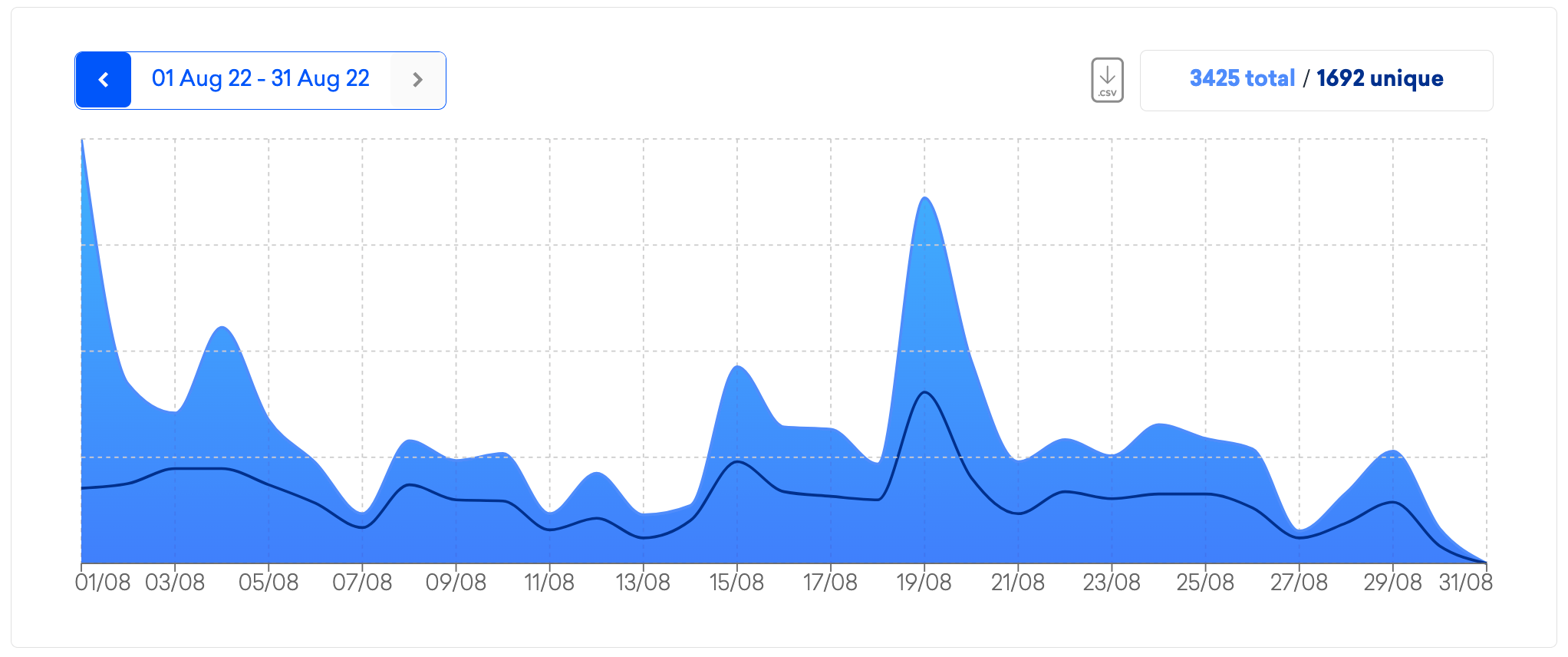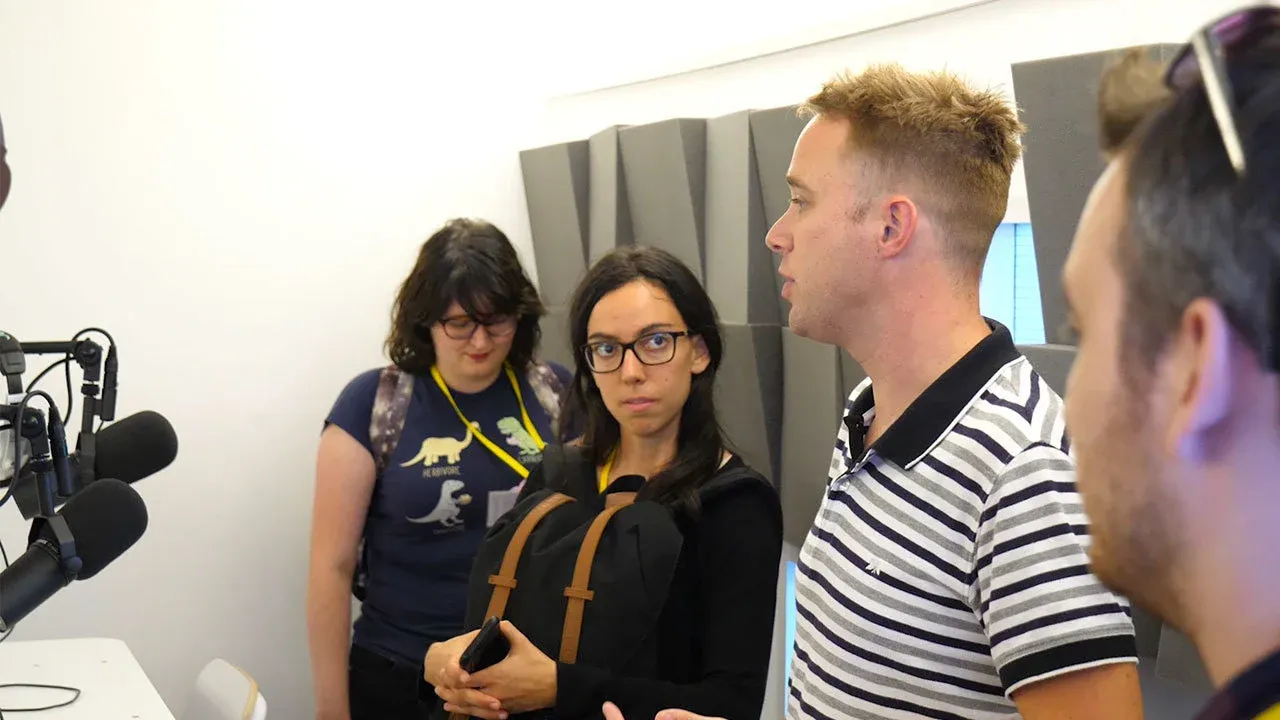If you’re looking to monetise your podcast without investing too much time into managing your sponsorships and promotions, then podcast networks might be just what you need. Among other functions, a network manages everything from finding advertisers to promoting your show, allowing you to focus on what you do best: creating great episodes.
But what exactly are podcast networks? How do they function? And how do you decide if joining one is the right move for your podcast?
What Are Podcast Networks?
In essence, a podcast network is a collective of podcasts that work together to accomplish things they may not be able to do alone, such as finding and landing advertisers or reaching wider audiences.
When you join a network, its team takes over the work of pitching to advertisers and marketing your podcast. This setup often results in a larger audience and higher revenue, freeing you up to focus on the creative aspects of your podcast.
Joining a network can be transformative for some podcasters. Just ask Patrick Wyman, host of the popular show Tides of History. He credits his decision to join Wondery, a major podcast network, as instrumental to his career:
Thanks to their support, the audience has more than doubled, and that growth has driven the ad sales. That has allowed me to quit my day job as a journalist to pursue my passion for history full-time… Joining Wondery is one of the best professional decisions I've ever made.
While podcast networks can deliver significant advantages, they’re not a one-size-fits-all solution. To determine whether they’re right for you, it’s important to understand how they operate and what you’ll need to contribute in return.

The #1 Podcasting Community
With more than 70,000 members, MatchMaker.fm is the largest online community connecting podcasters & guests.
Join MatchMaker todayHow Do Podcast Networks Operate?
Podcast networks generally fall into two main categories, each with distinct purposes and methods:
1. Ad-Based Podcast Networks
Most people think of advertising when they hear about podcast networks. These networks pool the combined download figures of all their member shows to attract lucrative sponsorship deals. By negotiating on behalf of a group rather than individual podcasts, networks secure better rates and terms, making it easier to monetise your show.

On the flip side, advertisers benefit from a streamlined process: instead of working with multiple shows individually, they make one agreement with the network to distribute their ads. The network, in turn, takes a percentage of the advertising revenue, typically around 30%.
Podcasters are usually paid based on a CPM (cost per thousand impressions) model. The actual earnings per 1,000 downloads depend on the type and placement of the adverts:
- Pre-roll (20–30 seconds at the start): $6–$20 CPM.
- Mid-roll (60 seconds in the middle): $11–$25 CPM
- Post-roll (10 seconds at the end): $4–$16 CPM
As an example, if you sell all three slots at maximum rates, you might earn $60 per 1,000 downloads. After the network takes their cut, that leaves you with $42.
However, to make significant income, your podcast needs to achieve substantial download numbers—often 1,000 or more per episode within 30 days of release. Given that 50% of podcasters receive fewer than 140 downloads per episode, reaching this level is no small feat.
If each new episode you publish gets 1000 downloads within the first 30 days of publishing, then you’re in a position to consider joining a network.
2. Ad-Free Networks
Not all podcast networks focus on advertising. Some are designed to foster collaboration, enhance visibility, or build authority within a specific niche. For instance, the Health Podcast Network curates high-quality health and wellness shows to connect listeners with reliable information.
These networks are usually easier to join as they don’t have strict requirements like minimum download numbers. They may also offer greater creative freedom, as you won’t need to tailor content to suit advertisers. That being said, ad-free networks are far less common than advertising-focused ones.
What Do Podcast Networks Expect From You?
Joining an advertising-based network will more than likely require you to meet specific criteria, such as:
- Reaching at least 1,000 downloads per episode (or 5,000 monthly downloads).
- Releasing regular episodes, often at least one per week.
- Sharing 30% of your ad revenue with the network.
- Participating in cross-promotion with other network shows.
Top-tier networks are bound to be more selective and typically only target podcasts within the top 1% of download figures. However, mid-tier and niche networks offer more accessible opportunities for smaller yet steadily growing shows.

Benefits of Joining a Podcast Network
If you fit their criteria, joining a network can bring quite a few benefits, including:
- Improved monetisation: Networks provide access to high-profile advertisers that you might struggle to connect with independently. By pooling shows together, networks can negotiate better rates and attract large sponsors, which can significantly boost your earnings. Even niche podcasts can benefit, as networks often specialise in connecting advertisers with specific audiences.
- Cross-promotion and audience growth: Podcast networks often rely on cross-promotion to boost the growth of their member shows. You’ll advertise other podcasts in the network on your show, and they’ll do the same for you. This means you can tap into new audiences who are already engaged with similar content. Many networks also provide additional marketing support, so it’s worth exploring the full range of services they offer.
- Enhanced credibility and professionalism: A well-known network’s brand can enhance your podcast’s perceived quality and trustworthiness. For advertisers, this signals that your podcast meets high production and content standards, while listeners are more likely to explore a show associated with a trusted network.
- Access to industry insights and support: Networks often provide resources and guidance to help you improve your podcast. This could include access to analytics tools, best practices for content creation, or even feedback on episode structure. Many also foster a sense of community, where podcasters can share tips, advice, and even collaborate on projects.
- More time for creativity: With the network handling marketing, sponsorships, and administrative tasks, you can focus on what matters most—creating engaging episodes. This is especially valuable if you’re a solo creator juggling all aspects of podcasting on your own.
- Stability and predictability: Networks often secure long-term sponsorship deals, providing a steady stream of income. This can be a game-changer for podcasters who struggle with inconsistent earnings.

Challenges of Joining a Podcast Network
Despite the advantages, joining a podcast network also comes with potential downsides:
- Reduced creative control: When you join a podcast network, you may not have full control over the sponsorships featured on your show. This means you could end up promoting brands you’re not entirely comfortable with. Additionally, networks may impose creative restrictions, limiting what topics you can cover in your episodes. These constraints often stem from advertisers wanting to ensure their ads align with content that fits their brand image.
- Revenue sharing: Podcast networks typically take a percentage of the ad revenue, with 30% being a common figure. While this fee can be worthwhile if the network helps you secure higher-paying sponsorships or reduces the workload of managing ads, it’s important to weigh whether you could achieve comparable earnings by handling everything independently.
- Hosting platform changes: Many networks require their shows to use a specific podcast hosting service. If your current hosting doesn’t align with the network’s preference, you may need to switch platforms. This could mean losing access to your existing analytics or adjusting to a new service you’re unfamiliar with. To avoid being caught off guard, it’s vital to research the hosting provider used by the network before committing.
- Ending existing sponsorships: Networks usually mandate that you terminate any ongoing sponsorship deals that you’ve arranged on your own. This could lead to a temporary loss of income as you transition to working with the network’s advertisers.
- Contractual obligations: Joining a network means agreeing to a contract, which more often than not, comes with strict commitments. You might be required to release episodes on a schedule created by the network, or provide regular reports and updates on your show’s performance. Before signing anything, be sure to carefully read the contract terms to fully understand what’s expected of you.

Choosing the Right Network for Your Podcast
With so many podcast networks available, figuring out where to start can feel overwhelming. Here are a few factors to keep in mind, and questions to ask when evaluating your options:
- Network size: Large podcast networks often cater to the top-performing 1% of shows, so if your podcast doesn’t yet have a massive audience, it’s better to focus on mid-sized networks. These are often more open to smaller or growing shows and can offer a better fit for your current stage.
- Focus or theme: Some networks specialise in specific genres or topics, like Gimlet Media’s emphasis on digital audio journalism and storytelling. If you’re considering a niche network, ensure your podcast aligns well with their overall theme. This compatibility can increase your chances of being accepted and thriving within the network.
- Additional services: Certain networks provide added benefits such as marketing report, editing services, or podcast coaching. These perks can be a big advantage, especially if you’re looking for guidance or help growing your audience. However, these extras are often limited to larger or more established shows, so it’s worth checking if your podcast meets their criteria.
- Revenue sharing: Most networks take a percentage of ad revenue, with 30% being a common cut. Smaller podcasts joining a larger network may have less negotiating power when it comes to these terms, so be clear about what you’re willing to accept and ensure it’s worth the trade-off for the support you’ll receive.
- Creative flexibility: Networks sometimes enforce rules about episode length, content, or format. These creative restrictions can impact your freedom to produce the show you want. Before signing up, carefully review the terms to confirm they align with your vision for your podcast.
Is Starting Your Own Network an Option?
If you’re running a smaller podcast, finding a network willing to take you on—or agreeing to the terms of a contract—can be challenging.
However, that doesn’t mean joining a podcast network is off the table. If you know other like-minded podcasters, creating your own network could be a great alternative. Even if individual shows aren’t large enough to secure sponsorships right away, collaborating on marketing and cross-promotion can still provide significant benefits.

Let’s say you host a podcast about gardening and know other podcasters in the same niche. You could come together to form something like the ‘Green Living Podcast Network’. By pooling your efforts, you can support one another in growing your audiences through cross-promotion. Plus, as your audience grows, you may eventually attract advertisers.
If you’re interested in creating your own podcast network but don’t know where to start, MatchMaker.fm is a fantastic tool for building these kinds of connections. You can use it to network with podcasters in your niche, find guest opportunities, or even recruit collaborators for your network. With thousands of podcasters and creators already using the platform, it’s a great way to bring your vision for a podcast network to life.
The Bottom Line on Podcast Networks
Joining a podcast network can be a great way to monetise your podcast without dedicating all your time to managing sponsorship deals. It might be the ideal step to take your show to the next level.
However, podcast networks aren’t a one-size-fits-all solution. They often have specific entry requirements, and once you’re part of one, you’ll need to meet contractual obligations, which may involve compromising some creative freedom.
If you’re considering joining a podcast network, take the time to review the terms of the agreement carefully. A podcast network can be a game-changer for your show—but only if it aligns with your goals and needs.
Ready to connect with other podcasters, grow your audience, and find collaboration opportunities? Try MatchMaker.fm today! With a 30-day free trial and Pro plans starting at just $15/month, it’s never been easier to take your podcast to the next level.

Book Your Next Podcast Guest the Easy Way
With more than 70,000 members, MatchMaker.fm is the largest online community connecting podcasters & guests.
Join MatchMaker today





